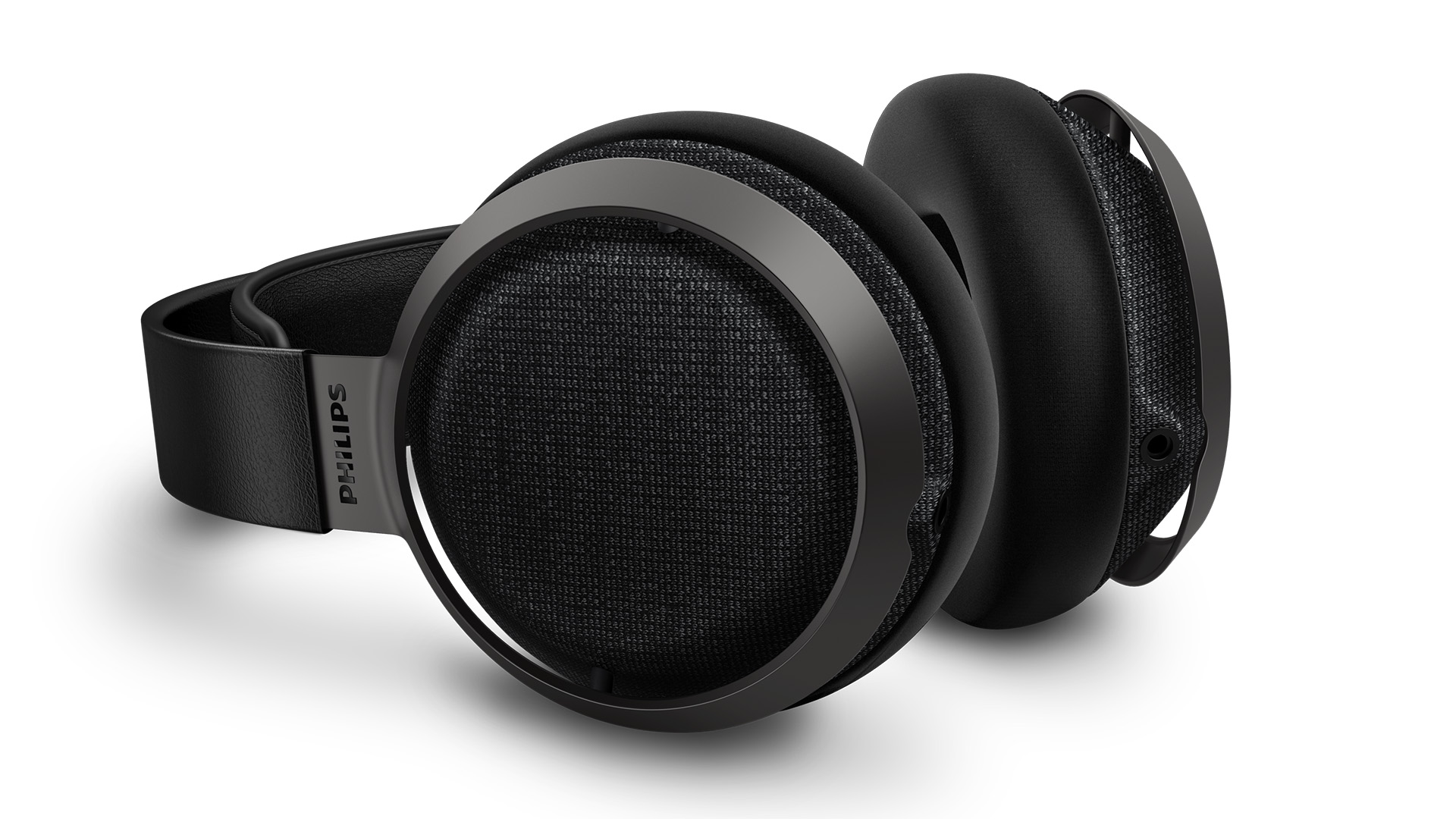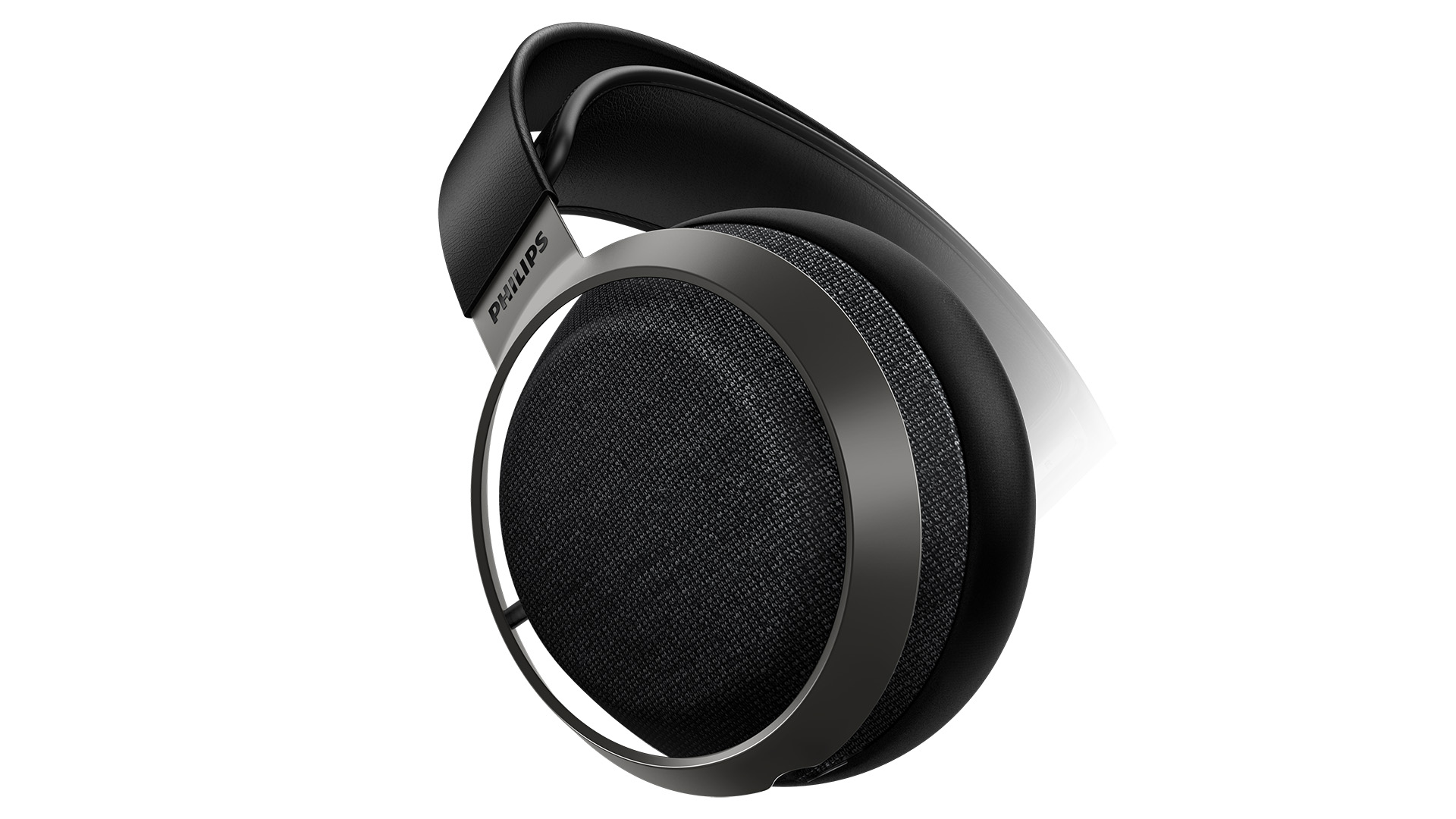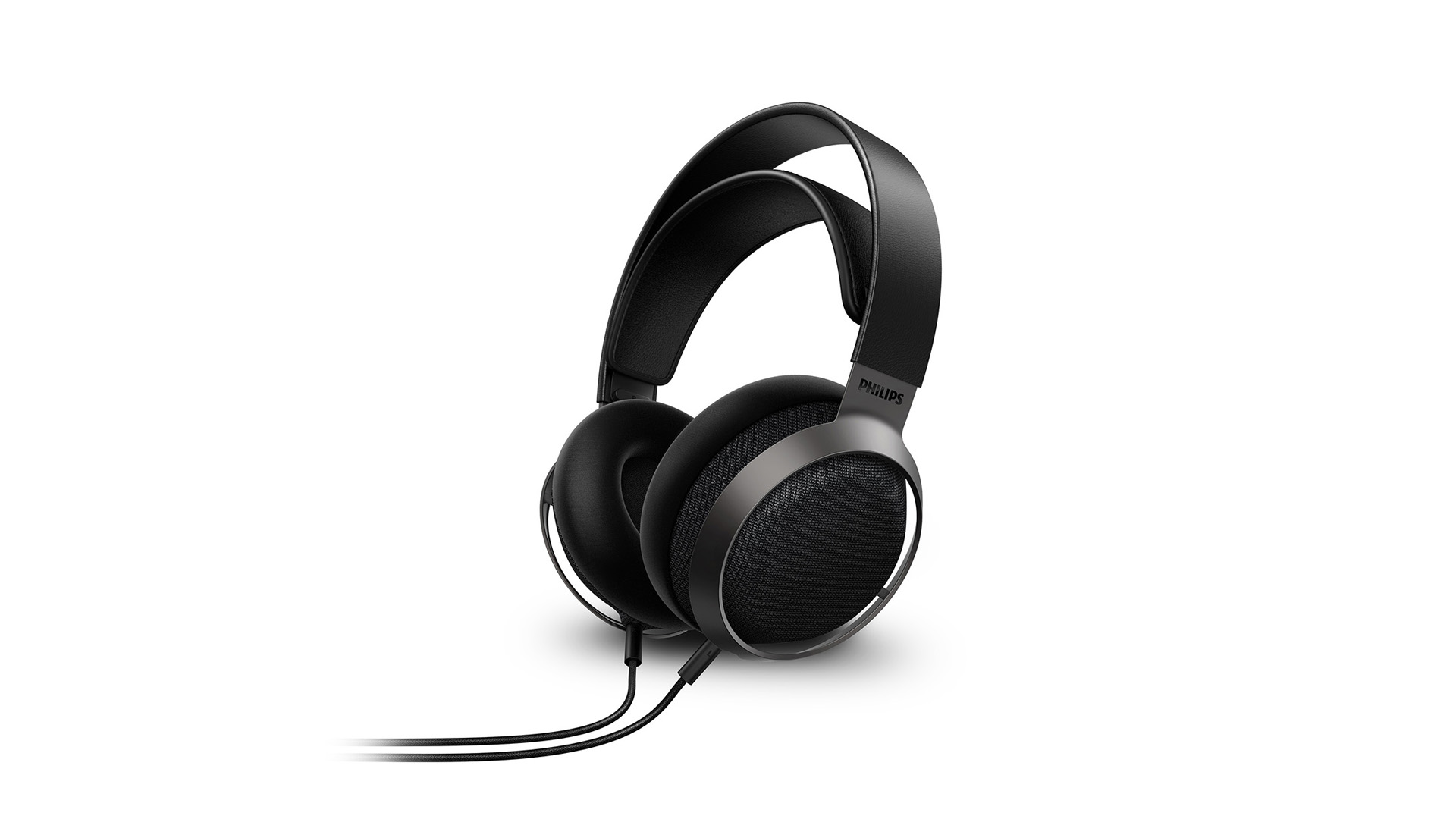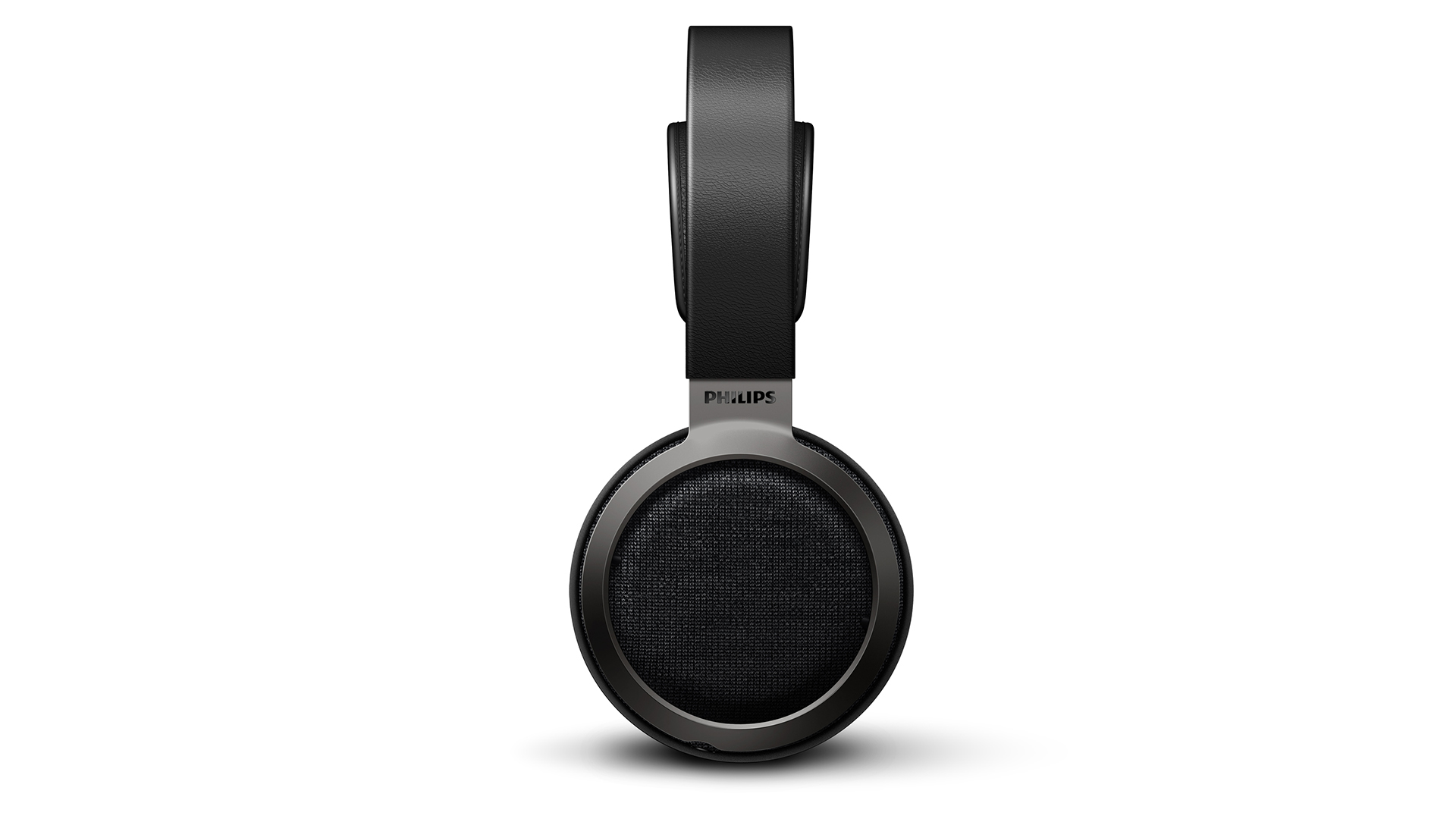What Hi-Fi? Verdict
The time for home headphones might well be returning, and Philips has staked its claim well with the Fidelio X3
Pros
- +
Detailed presentation
- +
Rich midrange
- +
Comfortable
Cons
- -
Lack energy
- -
Treble could be more open
Why you can trust What Hi-Fi?
“Like a concert hall for your ears,” reads the literature accompanying the Philips Fidelio X3 over-ear headphones. With concert halls shut for most of this year, there hasn’t been a better time to release a pair of open-back headphones since the market moved to more portable models a few decades ago.
Concert halls, we hope, will soon be open again, but we could well continue to spend more time at home than we did previously. So, if you’re using headphones at home rather than when you’re out and about, the inherent sound leakage of open-back headphones may no longer be quite the compromise it once was – and there is often a clear sonic benefit to this design.
So if you feel this is the time to invest in a serious pair of wired home headphones, you will find plenty to entice you with the Philips Fidelio X3.
Comfort

They look the part, for a start. Where you might opt for something more durable than attractive for those cans rattling around your work bag five days a week, the Fidelio X3 combine both with a leather and metal design that almost demands to be looked after.
Comfort has to be a priority for home listening, too – those hour-long train journeys are nothing compared to whole afternoons lost listening to music at home – and Philips has certainly succeeded here. The Fidelio X3 are light but substantial, like a good winter duvet.
An inner headband adjusts to fit your head, while the outer one adds a bit of weight. The memory foam ear cups combine comfort with the right amount of clamping to give that imperative good seal.
Build

Acoustically transparent Kvadrat speaker fabric covers the inner workings of these headphones, but don’t be fooled into thinking these are closed back. Air will flow through the fabric freely, eliminating air pressure build-up behind the drive unit diaphragm, but also letting a lot of sound leak out, as is usual with open-back designs.
The latest hi-fi, home cinema and tech news, reviews, buying advice and deals, direct to your inbox.

Sensitivity 100dB
Max power 500mW
Impedence 30ohm
Frequency response 5Hz – 40kHz
Dimensions (hwd) 11 x 23 x 19cm
Weight 380g
Double-layered ear shells are used to reduce structural resonance and vibration, while the neodymium drivers are engineered to tilt at 15 degrees, aiming to fit the natural geometry of your ear for optimal accuracy at high frequencies. The diaphragms of those 50mm drivers are also composed of multiple polymer layers and filled with damping gel.
The Fidelio X3 are technically compatible with any source with a headphone jack, and come with a 6.3mm adapter to go with the 3.5mm jack at the end of their 3m cable, but that doesn’t mean you shouldn’t take care when pairing.
Headphones such as these, aimed at analysis as well as musicality, are deserving of high-quality sources and material. If you’re playing music through your phone or laptop, for example, the least you can do is feed them with a hi-res streaming service and use an external DAC. During testing, we find these are more forgiving of poor quality audio than some rivals, but you’re still cuffing their ability by using Spotify straight from a headphone jack.
Sound

With a little running in, these Philips headphones prove they don’t only look and feel luxurious – they sound it as well. The presentation is predictably more open than any closed-back pair around this price, but that doesn’t mean you need lose solidity or a full-bodied presentation. The Fidelio X3 are not shy to offer that kind of richness.
We use ours with the Chord Hugo 2 DAC, and they make good use of the incredible detail on offer. Vocals are plumped well by a generous bass and lower midrange, but there’s texture within them as well. It’s a natural-sounding presentation of voices and instruments that allows both for deeper listening and for zoning out, satisfied you’re hearing things as they’re meant to be.
They’re happy organising big arrangements, too, whether that’s a dense pack of snarling guitars or an orchestra in full swing; the separation on offer does not deny a sense of everything being tied together or the confidence that another few instruments could be thrown in before the Fidelio X3 began to struggle.
Everything is played with consummate ease; the only issue is that sometimes it feels like these Philips are a little too laid back. Swap to the Fidelio X3’s main competitor, the Award-winning Grado SR325e, and the whole energy of the music changes.
The treble is most evidently livelier, which does mean you have to be even more careful with the quality of your source with the Grado headphones, but it can almost sound like the music is playing at an entirely different speed. Greater agility and more dynamic punch allow tracks to skip along more freely, and it feels as if there’s more detail on offer here too.
The more you swap from one to the other, the more pronounced these differences seem to become. Rhythmic coherence and dynamics are often what sets Grado above the rest – when it gets things right, at least – and their ability to make a hugely energetic and entertaining pair of headphones, without wearing out your ears, is accentuated by the comparison with Philips’s Fidelio X3.
Verdict
There is a lot to love about these Philips open-back Fidelio headphones. Many will even prefer their more subdued performance, which can indeed allow for a measured deeper listening experience.
However, that is the thing that holds it back from becoming a class-leader. We’d love a more open treble and a bit more life but, even so, the Fidelio X3 should appear on your audition list.
SCORES
- Sound 4
- Comfort 5
- Build 5
MORE:
Read our guide to the best over-ear headphones
Read our Grado SR325e review
What Hi-Fi?, founded in 1976, is the world's leading independent guide to buying and owning hi-fi and home entertainment products. Our comprehensive tests help you buy the very best for your money, with our advice sections giving you step-by-step information on how to get even more from your music and movies. Everything is tested by our dedicated team of in-house reviewers in our custom-built test rooms in London, Reading and Bath. Our coveted five-star rating and Awards are recognised all over the world as the ultimate seal of approval, so you can buy with absolute confidence.

